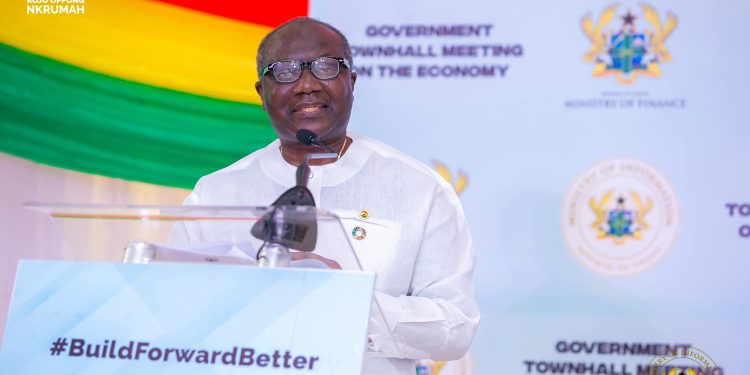The government of Ghana through the Finance Ministry has announced the results of the U.S. dollar-denominated bonds exchange which according to reports witnessed a massive participation.
According to the ministry, the dollar-denominated bonds which closed on 25th August 2023, had approximately 92% of eligible bond holders which participated in the Invitation to Exchange (as determined by the Central Securities Depository) tendered their Eligible Bond.
The ministry, in a statement, explained that the capitalized terms used “but not defined herein” have the meaning ascribed to such terms in the Exchange Memorandum (as amended from time to time).
The statement from the ministry indicated the government’s excitement over the high participation rate. It said it is “pleased with the results, as a substantial majority of the Eligible Holders have tendered. This result is a significant achievement for the Government to implement fully the economic strategies in the post-COVID-19 Programme for Economic Growth (PC-PEG) during this current economic crisis”.
“To provide sufficient time to settle the New Bonds in an efficient manner, the Government is extending the Settlement Date of the exchange from the previously announced 1st September 2023 to 4th September 2023”, the statement further noted.
The finance ministry in the statement indicated saying, “The issue date, interest accrual schedules and payment schedules for the New Bonds will be adjusted to reflect the actual Settlement Date”. It further pointed that, “Except as set forth in this paragraph, the terms and conditions of the Invitation to Exchange are not modified or amended”.
The ministry meanwhile, urged bond holders to refer to the Exchange Memorandum or contact the Central Securities Depository (CSD) for further details, “As the Invitation Period has expired, no new tenders will be accepted, and no revocations or withdrawals are permitted”, the ministry said.
Appreciation to Bondholders
The Government moreover expressed its deep appreciation to bondholders and key stakeholders for their immense support of the Domestic Debt Exchange Programme (DDEP).
Ghana recently asked domestic U.S. dollar bondholders to swap their holdings for two new bonds with lower rates and longer maturities. The West African nation concluded the first phase of its domestic debt exchange in February – with 85% of eligible bondholders participating – but needs new terms for another 123 billion Ghana cedi ($11.18 billion) to qualify for the next tranche of a $3 billion IMF loan to address its worst economic crisis in a generation.
The debt comprises domestic dollar bonds, cocoa bills, local currency bonds owned by pension funds, and debt it owed the central bank and independent power producers.
The country also reached an agreement with banks to restructure 15 billion cedi ($1.36 billion) of locally issued U.S. dollar bonds and cocoa bills.
Meanwhile, large external shocks coupled with internal mismanaged in recent years have exacerbated Ghana’s pre-existing fiscal and debt vulnerabilities, resulting in a loss of international market access, increasingly constrained domestic financing, and reliance on monetary financing of the government. Decreasing international reserves, Cedi depreciation, rising inflation and plummeting domestic investor confidence, eventually triggered an acute crisis.
To tackle these problems, the government has taken bold steps to tackle these deep challenges, including by accelerating fiscal adjustment. The government also launched a comprehensive debt restructuring to address severe financing constraints and the unsustainable public debt.
As part of the efforts to get the economy on track, the Executive Board of the International Monetary Fund (IMF) approved a 36-month arrangement under the Extended Credit Facility (ECF) in an amount equivalent to SDR 2.242 billion (around US$3 billion, or 304 percent of quota). The program was based on the government’s Post COVID-19 Program for Economic Growth (PC-PEG), which aims to restore macroeconomic stability and debt sustainability and includes wide-ranging reforms to build resilience and lay the foundation for stronger and more inclusive growth.
The Executive Board’s decision enabled the disbursement to Ghana equivalent to SDR 451.4 million (about US$600 million) in badges.


Comments are closed.